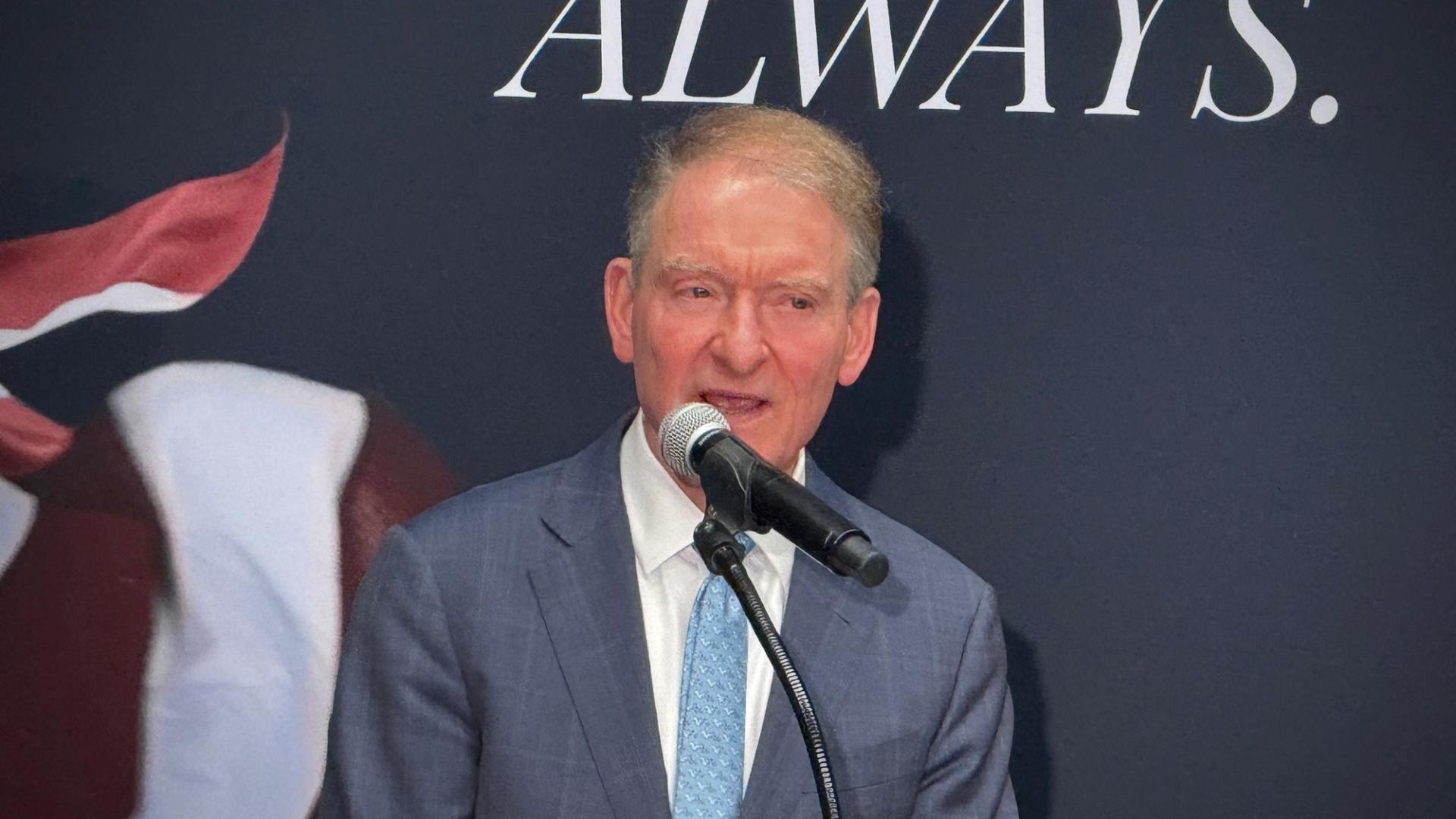SEC’s Atkins Drops Bombshell: ’Most Crypto Assets Escape Security Classification’ in Game-Changing Policy Shift

Regulatory earthquake rocks crypto markets as SEC Commissioner Atkins redefines the playing field.
In a move that sent shockwaves through Wall Street and Silicon Valley alike, SEC Commissioner Paul Atkins dropped a regulatory grenade yesterday—declaring most digital assets fall outside traditional securities definitions. The announcement immediately triggered a 5% surge in major altcoins, with traders scrambling to reposition portfolios.
Wall Street's compliance departments reportedly burned midnight oil parsing the implications—while crypto natives celebrated what many see as long-overdue regulatory clarity. 'This finally acknowledges what we've known for years,' said pseudonymous developer SatoshiLite on X. 'Tokens are a new asset class.'
The policy shift comes as institutional adoption hits record highs, with BlackRock's crypto AUM surpassing $15B last quarter. Yet skeptics warn the SEC's stance may simply reflect political realities—not economic ones. 'They're not embracing innovation,' quipped one hedge fund manager. 'They're surrendering to it.'
One thing's certain: The lines between securities and commodities just got blurrier. And in typical government fashion, the clarification raises more questions than it answers.
Crypto as securities
Atkins offered a rhetorical reversal from the days when predecessor SEC Chairman Gary Gensler said the vast majority of cryptocurrencies were likely securities that needed to be overseen by the agency.
"Despite what the SEC has said in the past, most crypto assets are not securities," Atkins said. "But confusion over the application of the 'Howey test' has led some innovators to prophylactically treat all crypto assets as such."
Even as Congress continues to work on complex legislation that will define crypto securities under new law, Atkins suggested his agency will MOVE to begin answering those questions now, working on "clear guidelines that market participants can use to determine whether a crypto asset is a security or subject to an investment contract."
Even when projects get a securities label, he argued that it should not be a "scarlet letter."
For crypto securities, he said he's "asked staff to propose purpose-fit disclosures, exemptions, and SAFE harbors, including for so-called 'initial coin offerings,' 'airdrops' and network rewards."
Atkins underlined Trump's goal to establish a "golden age" for digital assets in the U.S.
"We will reshore the crypto businesses that fled our country, particularly those that were crippled by the previous administration’s regulation-by-enforcement crusade and 'Operation Chokepoint 2.0'," he said.
Self-custody, Super-apps
The chairman, who began work this year after his appointment by President Trump, also argued in favor of people's self-custody of crypto assets.
"I believe deeply in the right to use a self-custodial digital wallet to maintain personal crypto assets and participate in on-chain activities like staking," he said. "However, some investors will continue to rely on SEC registrants, such as broker-dealers and investment advisers, to hold assets on their behalf, and these firms are subject to additional regulatory requirements when they do so."
He also seemed to push back on a routine criticism from Gensler that crypto firms offered too many often-conflicting services within a single business. Atkins said he means to "allow market participants to innovate with 'super-apps'" that offer a "broad range of products and services under one roof with a single license."
That WOULD include allowing multiple types of assets to trade on a single platform, offering:
"A broker-dealer with an alternative trading system should be able to offer trading in non-security crypto assets alongside crypto asset securities, traditional securities, and other services, like crypto asset staking and lending, without requiring fifty-plus state licenses or multiple federal licenses."
While the SEC under Gensler and his predecessors seized ground as the most important regulator and enforcer in U.S. crypto trading in the past years, the future oversight structure contemplated by Congress would likely elevate the Commodity Futures Trading Commission to a prominent role.
It's possible, then, that Atkins' Project Crypto will be of lesser urgency as the sister agency assumes some responsibilities.
Atkins added a defense of software developers — a point of particular interest in the week in which Tornado Cash's developer, Roman Storm, was defended in a criminal trial.
Atkins argued the importance of "protecting pure publishers of software code, drawing reasonable lines to distinguish intermediated and disintermediated activity, and creating rational and workable rules of the road for intermediaries that seek to operate on-chain software systems."
Adds more details from the speech.

